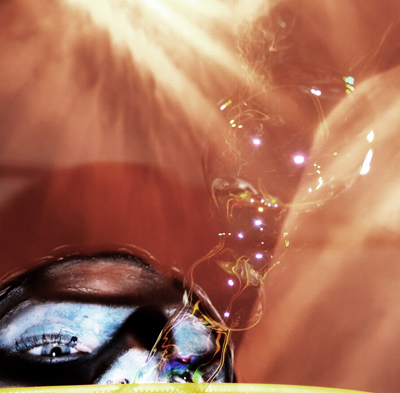I love the first sentence! Is that where the story started for you?
I was at work listening to one of the girls talk about how, when she visits her family back in Chicago, she drives some beater car she bought for like $300. I thought, “Holy shit, that’s right, you can buy a car for $300.” Then I remembered that I already knew that, that in high school my buddy Darin’s brother tried to sell me his car for $50. I went home from work that day and wrote that first sentence. The rest of it came fairly quickly, but I revise as I write and I really wanted to make every sentence a stunner. I was reading a lot of Amy Hempel and Gary Lutz at the time—a really dangerous, mystifying combination. There’s a Hempel interview where she talks about how the first sentence of Mark Richard’s story “Strays”—At night, stray dogs come up underneath our house to lick our leaking pipes.—has everything: Our, dogs, house. I really wanted to apply that to “Jalapeno Summer”: We, summer, eighteen.
The sneaky thing about “Jalapeno Summer” is that it’s not really about the cars crashing; it’s about the way each member of the group decides not to move away. What is different about the narrator that he decides to go even though the others have given up?
We’d have a lot more movie stars and a lot fewer movie theater clerks if people didn’t have to give something up to function. That’s just life. I lived in a town with a population of about 2,000 people—this is where I picture the narrator and his friends being based out of—and almost everyone wanted to get out. Then they did, and they gave up there instead of at home. I think the other members in the narrator’s group of friends definitely gave up, but at least they didn’t have to move all their shit into a dorm room to do it.
One of my favorite elements is how the narrator likes the color combinations created by the wrecked cars. Do you also find beauty in damaged things?
I’m trying to learn that I can’t compliment a woman on her “elf-like ears” or “asymmetrical eyebrows” no matter how earnestly I preface it with the word “adorable.” My fascination with body issues say nothing of the related neuroses involving rearranging my books when drunk or refusing to publically date me because a bible study group might frown upon it. Even my favorite guitar was stepped on and repaired haphazardly—there’s an oval sized chunk that was routed out of the back and filled in with a cheap wood of different grain and color. I feel bad for the narrator because at the end of the day, it’s still a broken car—it’s still a mentally-questionable woman or a guitar that dares to be played. Of course, I would feel even worse if any of those things were perfect. Which is the better story: How did you stay perfect? or Where the fuck is your face?
I really got to know these characters over a short time. Any plans to revisit them?
I think Leo’s about run his course. He’s a wonderful idiot, but I think that would get old pretty fast. Mickey and Tal will probably show up somewhere else down the line, but, like you said, they’re different than the narrator, and I don’t quite know if I understand them enough to write extensively about them. All three are great supporting characters
The narrator is actually the main focus of a chapbook I recently completed called Murmuration. “Jalapeno Summer” is the first story in it, and we reconnect with him every two years until he’s 28. I’m going to clean it up in the next month or so and then start pitching it as a “Midwestern Story Cycle” to anyone who will listen. It’s mostly flash fiction except the title/closing story, which is about 2200 words, practically a novel for me the way I write fiction as of late.
The balance between humor and sadness is perfect. Why are we always so quick to forgive the mistakes of those on the cusp of becoming an adult?
Once high school is over, that feeling of “Okay, here’s your life,” really kicks in. That seems to be the age where we really start to understand empathy, even if we don’t exactly know how to apply it. (Some people never figure it out.) We learn what empathy is early on in life—How would you feel if someone did that to you? —but don’t necessarily get how important it is until that age, one of consent and legality and all sorts of other aspects of life that have literally nothing to do with someone sitting us down one-by-one in a well-lit room and explaining that there’s no reason to be such an asshole all the time.



 The SmokeLong Grand Micro Contest (The Mikey) is now an annual competition celebrating and compensating the best micro fiction and nonfiction online.
The SmokeLong Grand Micro Contest (The Mikey) is now an annual competition celebrating and compensating the best micro fiction and nonfiction online.